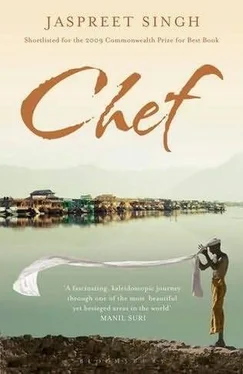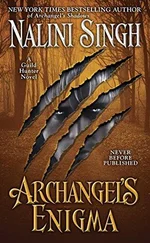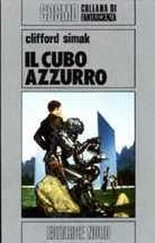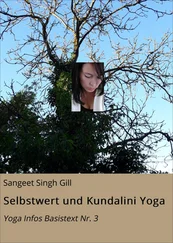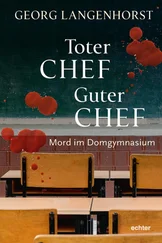The French embassy-wallahs told me about a master chef, Batel or Patel his name was, and this man killed himself because he could not deliver the perfect meal. I bow before the master. I can never bring myself to do that.
Right in the middle of the journal, he talks more about his apprenticeship at five-star hotels and foreign embassies in Delhi. Of all the embassies, he received his warmest welcome from the German embassy. He writes about Chef Muller. Chef Muller introduced him not only to German cuisine, but also to music. This music I listen to when I am alone, he writes. In the kitchen I hear this music when cooking. I cannot thank Chef Muller enough for gifting me two tapes of such fine music. But, how uninteresting German cuisine is! Even the curried sausage. It is hard to comprehend how such a culture managed to produce such incredible music!
Chef’s life and work are fused together; it is difficult to separate them at least in the notebook. I had expected to see more sketches. But there are only three dirty pictures. A naked woman is shoving a Cadbury’s chocolate bar inside her sex. A man is balancing an orange on his erect lingam. His penis is coated with ‘kamasutra powder’ – the recipe is scribbled on the margin. Otherwise the pages look surprisingly clean. Only five or six have grease on them.
Flipping through, it seems as if this is my journal. I have never kept a diary, but I might have written more or less the same words. I would have skipped the dirty sex parts, but I might have written about other things in a similar way. When I read these pages I sense a remarkable similarity in voice. He was my second self or perhaps I am what he was becoming. The greatest gift he gave me was not food. Not even the foreign cuisines.
Chef gave me a tongue.
The tone changes the moment he is transferred to the glacier. But again he is talking about his plans to install the first tandoor on Siachen. He plans to use mules as transport to take the component parts to the camp on the Icefields. He proposes a detailed method on how to reassemble the parts. He does not recommend parachuting the fully assembled clay oven down on the Icefields using a helicopter. (This method was used to transfer the Swedish guns.) He uses the words ‘glacier’ and ‘icefields’ interchangeably.
In the beginning of June, he writes, with a heavy heart I quickly collected my things and left the base headquarters. We followed the long and dangerous road to Ladakh. Then a Cheetah helicopter flew us to the Icefields, a camp twenty thousand feet high. In the helicopter I was feeling dizzy. When I looked down I experienced vertigo. This was the first time I saw the Icefields from so close. They are like their name: huge white endless fields, where a hundred thousand people can play cricket and hockey for days on end. But the place is absolutely empty. Empty and desolate. Other than two little army camps there is nothing. Our camp is at a higher elevation than our enemy’s.
Minus 58. God help us all.
A soldier told me that this place is the second coldest on Earth, he writes. The glacier is eighty miles long. The name means ‘wild rose’. Wild roses grow at the base of this beast or organism or whatever it is. The Balti people live there, and in their language Siachen means wild rose.
Not a single day goes by without firing by either side. We never attack on Fridays. A soldier told me that Fridays privilege the enemy because it is the day of their prayer. Saturdays are better. On Saturdays the peaks flash like the inside of a tandoor.
Most of the mountain peaks here do not have names. So we give them names. Because we do not have much to do in the kitchen we find ways to amuse ourselves. Giving the peaks names kills time very well. Sometimes we give names which are abuses in our language: Ma-chod, bahen-chod, bhon-sadi-day. We call our enemies Pakis or sulahs. They call us Hindu cunts. Those ma-chods, behn-chods, bhon-sadi-days. Mother fuckers. Sister fuckers.
Our homes are white arctic tents, each one with space for three sleeping bags. Evening, morning and afternoon I hear the same thing from the men: Arrange my transfer, or I am very unhappy here. Men become extremely religious here. The soldiers read Hanuman Chaleesa and Gita if they are Hindus and Japuji if they are Sikhs, and Koran if they are Muslims, but there are not many Muslims in the army.
There are soldiers who look at photos of Bombay actresses like Shilpa Shetty (and vamps like Helen) for hours while others listen to songs on transistor radio. Some engage in thirty-second open-air pissing and spitting contests. Fluids freeze before hitting white ground. I have my Sony tape recorder here. Sometimes when I need to be alone I put on my parka and underpants under pure wool fatigues, and lace my Swiss snow boots and put on my gloves and baklava and black goggles and step out for a walk in loose, deep snow. I take my Sony along, and when I am far enough away from our camp I play Chef Muller’s German music. The music is foreign to my ears and perhaps that is why I like it more than our own.
We wash once a month. We use kerosene oil to melt ice. Kerosene stoves run twenty-four hours in the tents. We have learned not to waste even a single drop of water… Kerosene blackens our faces, our fingers. We step out for the call of nature. We shit on the Icefields. The doctor has instructed us not to expose ourselves longer than thirty seconds. It is so cold on Siachen.
There is something wrong with the way we eat here. Precooked food. Canned curry and subzis. Canned rice. Chappati is a luxury. Unhealthy Maggie instant noodles. No Balti chicken. Mango frooti juice in tetrapacks. Salted Amul cheese. Butter. White bread. Cadbury chocolate bars are not for eating; we unwrap the bars and break them and dump them on the ice floor in our tents; chocolate makes ice less slippery, allowing us to walk without falling; we step on chocolate burfi, literally. I hate chocolate. Rum is free-flowing. Rum, too, allows us to walk. Sometimes jawans steal kebabs from the plates, which are sent to the officers’ tent. I approve of this wholeheartedly.
Mustard oil is our savior. It doesn’t freeze.
The Sikh soldiers experience more pain than the rest of us, he writes. Sharp crystals and icicles form in their beards. Long hair inside their turbans becomes matted automatically. They cry in pain trying to comb the hair. Halat khasta, they cry. Kip would have been dead by now.
Don’t believe if someone tells you that men on the Icefields die like animals. No, they do not die like that. A mule when it slips into a crevasse cries out of agony for one full hour before slipping into deep silence. Men die either instantaneously, or take several days. On 4 March Naik Surendran died in his sleep due to HAPO. Two days later a second-lieutenant fell from a height of 14,000 feet. The rescue team failed to retrieve his body. They returned with a dead corporal, the soldier’s fingers stitched to his public hair.
There are a few breaks in the entries after this point. Two or three pages later he starts repeating himself. As if he is stuck inside a cold white vortex. Armies are supposed to be mobile tigers and foxes, he writes. But we have become ice.
Everything is white here, even time has turned white. These are my white hours. This Icefield is not for the weak-hearted. We are being killed not only by the Pakistanis but also by bitter cold. It is so cold here it eats one’s brain and belly and freezes the heart. Men use jerry cans of kerosene oil to thaw the Bofors guns. We are lucky we have the Swedish Bofors guns. They can lob the forty-kilo shells (which look like jackfruit) into the enemy positions thirty or forty miles away. The guns are helping us sheeshkebab the Pakis. But to use the guns one must stand out in the cold. Men complain about mountain sickness, this condition is called HACO – a human brain drowns in its own fluids, a human body turns blue, and HAPO – a lung fails due to lack of oxygen. Men can’t sleep. We hallucinate. Some hear the cries of djinns. Men become impotent. Yesterday a gunner while eating his meal broke down. He was telling us about his victories with women, and then suddenly he broke down and started weeping and said he can no longer get it up. It seems to me the reason he lost his manhood is because he stayed too long at this altitude. Six months without a break on Siachen. His officer could not find a replacement. I tried to console him, but he punched me in the mouth and said – what do you kitchen people know?
Читать дальше
Конец ознакомительного отрывка
Купить книгу
